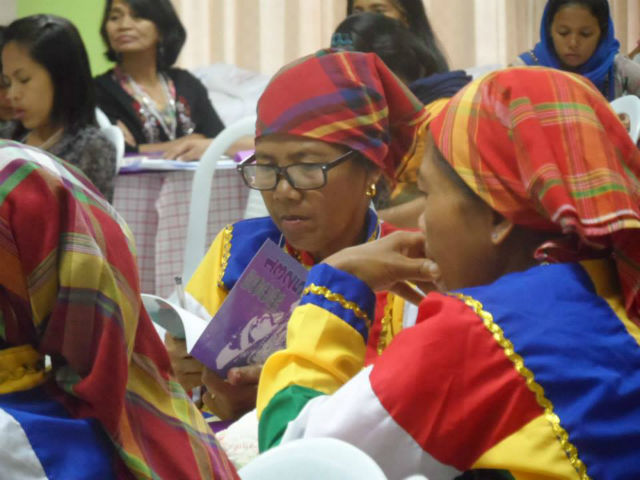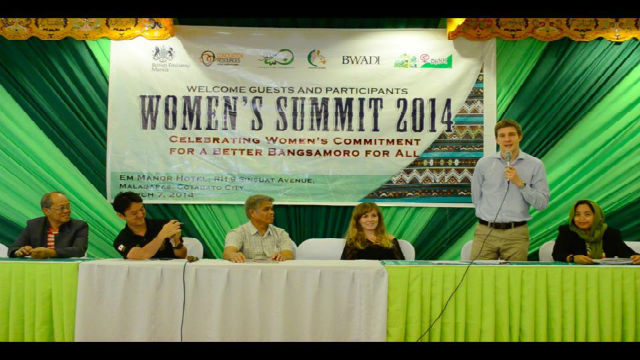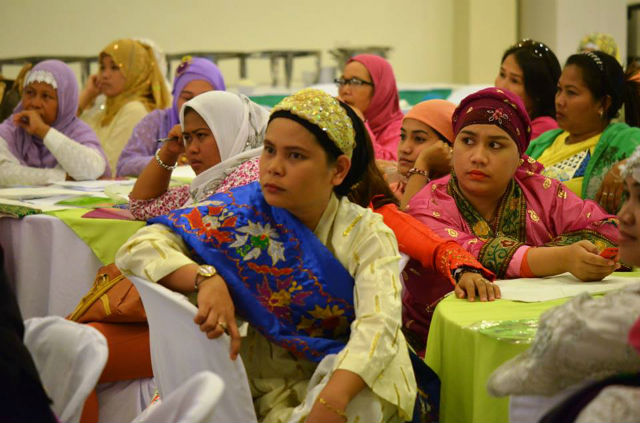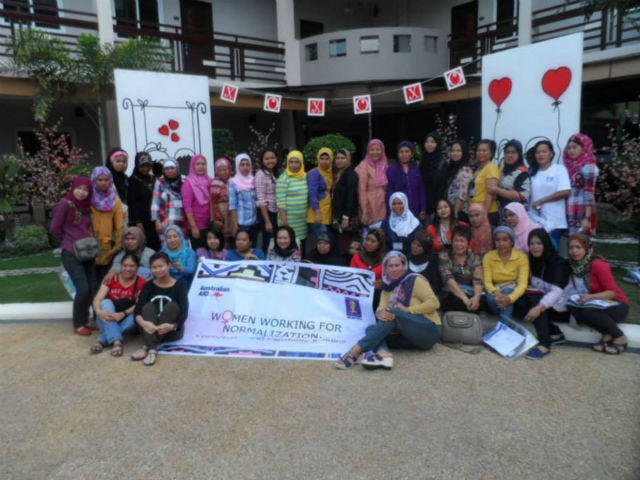SUMMARY
This is AI generated summarization, which may have errors. For context, always refer to the full article.
MANILA, Philippines – Conflict has dire consequences – for people who are injured or displaced, for the economy, and for development opportunities which are wasted. And it is women who often bear these consequences.
Women are victims of sexual violence, which is often used as a weapon of war. It is estimated that the vast majority of civilian casualties, and over 80% of people who are displaced, are women. Yet women are not only victims; they also play key roles in preventing violence from re-emerging, in resolving ongoing conflict and in rebuilding societies.

In Mindanao, where instability and insecurity have continued to hamper development for over 4 decades, women have been part of the peace negotiations between the Government of the Philippines and the Moro Islamic Liberation Front. And by ensuring that both men and women are involved in rebuilding communities and in making decisions, peace is more likely to be lasting.
Forming lifelong partnerships
The British Embassy in Manila, through its partners, has been supporting women’s participation in the drafting of the Basic Law of Muslim Mindanao.
 Last March 7, 2014, one day before International Women’s Day, a Women’s Summit was held in Cotabato City. The event was the culmination of a project funded by the UK Government to entrench women’s participation in the establishment of a new regional government in Mindanao.
Last March 7, 2014, one day before International Women’s Day, a Women’s Summit was held in Cotabato City. The event was the culmination of a project funded by the UK Government to entrench women’s participation in the establishment of a new regional government in Mindanao.
The aim was to bring together various women groups from the southern Philippines and present the Women’s Commitment to the Bangsamoro Transition Commission (BTC), which was tasked to draft the Bangsamoro Basic Law (BBL) for the new Bangsamoro political entity.

Over 72 communities, including 2,750 Muslim, Christian and Indigenous People’s women in Mindanao, have been consulted to identify their needs, dreams and aspirations towards a better Bangsamoro.
A major highlight was the attendance of the members of the BTC, including its chairman, Mohagher Iqbal, as well as lawyer Raissa Jajurie, lawyer Johaira Wahab, Abdullah Camlian and others. They provided support for and thanked the women groups for their recommendations to improve the draft legislation.

Similarly, the Australian Embassy in Manila, through its partners, has been supporting women’s involvement in normalization, a process where communities can return to conditions where they can achieve an improved quality of life, by consulting women in conflict-affected areas in Mindanao and empowering them to encourage peace and nonviolence, and respect diversity.
Summit in London
To further encourage positive participation in peace building, the British and Australian embassies are supporting a delegation of 12 Filipinos to attend the UK’s Global Summit to End Sexual Violence in Conflict to be held in London from June 10 to 13.
The summit will encourage practical action that makes a genuine difference in conflict-affected areas, and recognize the important role that Filipinos play in addressing the prevailing culture of impunity for crimes. This is meant to support survivors, and to end the use of sexual violence as weapons of war.
The strong support given by Britain and Australia to the United Nations Security Council Resolution 1325 on women, peace and security, which recognizes the significant role that Filipinos play in preventing, managing and resolving conflict, has highlighted what they can do in the peace-building process.
Women can be leaders and influencers. They can help address global issues if given the chance. Beyond being a part of a changing world, women can also help other men and women realize that they, too, can make a difference. – Rappler.com
Add a comment
How does this make you feel?
There are no comments yet. Add your comment to start the conversation.